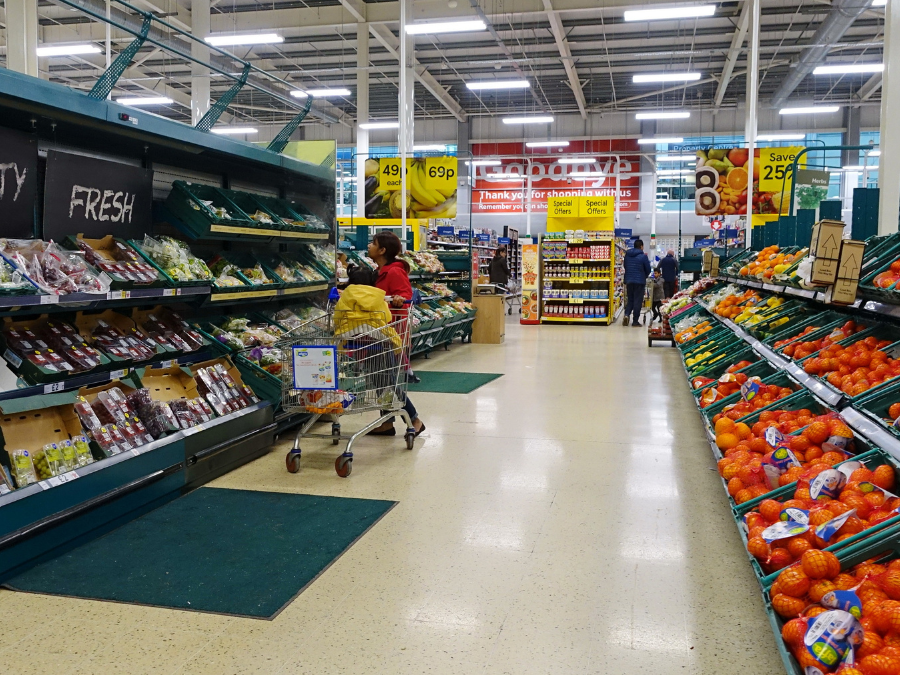
Consumer group Which? has called upon the UK government to take action on soaring grocery prices as households continue to feel the squeeze.
Research by the watchdog shows some products have almost tripled in price in two years, which “has made affording the weekly shop increasingly difficult for some people”.

Discover B2B Marketing That Performs
Combine business intelligence and editorial excellence to reach engaged professionals across 36 leading media platforms.
It called upon retailers to introduce measures such as stocking essential budget-line items in convenience stores.
Sue Davies, head of food policy at Which?, said: “Our research exposes the shocking true scale of food price inflation at supermarkets since the cost of living crisis began and shows why recent headline-grabbing price cuts of a few pence on some products are encouraging, but simply won’t be enough to help people struggling to put food on the table.
“It’s crucial that the government responds quickly to the Competition and Markets Authority’s (CMA’s) grocery pricing review by updating the rules so they are fit for purpose, as we’ve found pricing practices, both online and in-store, to be inconsistent, confusing and sometimes missing altogether.
“But supermarkets shouldn’t wait to improve how they display prices, particularly where unit pricing is currently not provided on loyalty card offers, such as Tesco’s Clubcard.”

US Tariffs are shifting - will you react or anticipate?
Don’t let policy changes catch you off guard. Stay proactive with real-time data and expert analysis.
By GlobalDataThe Which? campaign comes as UK food and beverage prices eased in May for the second consecutive month, although headline inflation remained static.
On a monthly basis, food inflation pulled back to 0.9% in May, compared to 1.5% in May last year, Office For National Statistics (ONS) figures show.
However, food and non-alcoholic beverage inflation remained in double digits on an annual basis. In May the food and non-alcoholic beverages CPIH, which includes housing costs, rose 18.4% year-on-year, compared to 19.1% in April.
UK grocery inflation has been led by the cost of animal feed, fertiliser and fuel, as well as energy and labour, since Russia’s invasion of Ukraine last February.
Poor harvests, bird flu and a weaker pound have also contributed to rising costs and low availability. In March, a salad shortage also pushed up the prices of fresh food.
Which? said food prices at major UK retailers went up by 25.8% between June 2021 and June 2023 on average. Its analysis included over 21,000 food and drink items at eight companies: Aldi, Asda, Lidl, Morrisons, Ocado, Sainsbury’s, Tesco and Waitrose.
It found some items had increased by as much as 175% in the three months to the end of June 2023 compared to the same period two years earlier.
It noted that inflation on supermarket own-label budget lines slowed year on year, going from 26.6% in June to 26.2 per cent in July. However, across the two-year period budget lines have increased by 37.1% on average, it found.
Earlier this month, Oxfam and ActionAid called out food and beverage majors for making “windfall profits”, accusing them of “greedflation”.
The findings come ahead of a CMA review on the UK grocery sector.
“The CMA should be ready to take appropriate action if competition issues are found. The Chancellor should also immediately update on his progress to agree on potential measures with the industry to ease the pressure on consumers, following his meeting with food manufacturers on 23 May,” Which? said.
In May, the CMA said it “had not seen evidence pointing to specific competition concerns in the grocery sector” but would continue to make sure that weak competition is not a factor.
On May 16, UK Prime Minister Rishi Sunak hosted the UK Farm to Fork summit at Number 10 Downing Street, bringing together several government departments, industry body leaders, food companies and supermarket groups.
It aimed to thrash out issues including food security and retailer/supplier relationships, though its success it yet to be seen.





